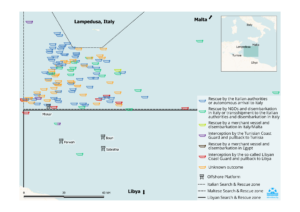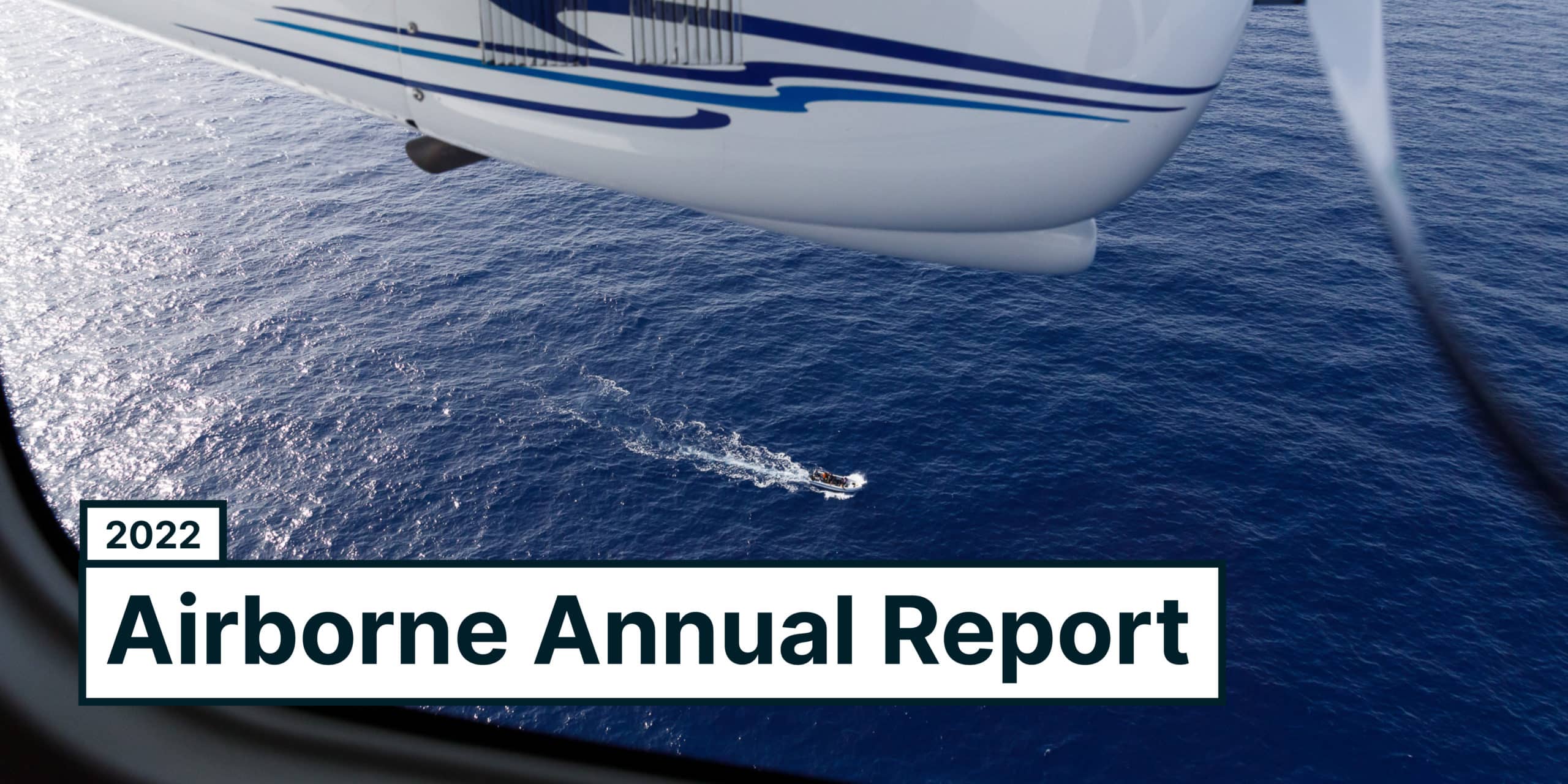In 2022, 105,131 people arrived to Italy by sea, mainly from Tunisia and Libya. In Malta, however, the arrivals were only 444 people. In order to fully put these arrival figures into perspective, the mortality figures as well as numbers of illegal returns (pullbacks) committed by the Tunisian and the so-called Libyan Coast Guard in the central Mediterranean Sea must also always be considered. In 2022, the so-called Libyan Coast Guard intercepted 24,684 people at sea on their way to Europe, and the Tunisian Coast Guard 38,372, sometimes even from the Maltese Search and Rescue (SAR) zone – pulling them back to Libya and Tunisia respectively. These forced and illegal returns are enacted on behalf of the EU. The European Union and its member states work to externalize European borders, enabling these coastguard actors through funding, equipment and political legitimacy, towards their ultimate goal of preventing migration to Europe. However, neither Tunisia nor Libya are safe places for persons rescued from distress at sea. The absence of safe and legal routes to Europe has for years resulted in thousands of people losing their lives while attempting to cross the Mediterranean. In 2022, 1,417 people drowned on the central Mediterranean route.
Our aerial monitoring flights were unlawfully restricted by Libyan authorities for over 10 months in 2022. In March 2022, we were prohibited from entering the Libyan Flight Information Region (FIR) for the first time, with the statement that we needed prior permission to enter (PPR). Our aircraft fly in uncontrolled international airspace over international waters, where Libya has no sovereignty to require said entry permission. During the ban, we continued our flights over the Maltese SAR zone. In January 2023 – after a 10 month forced pause – we then finally managed to resume our monitoring flights over the Libyan SAR zone.

(All boats spotted)
Our presence and documentation activities over the Libyan SAR zone are urgently needed. Besides the high number of illegal pullbacks undertaken by the so-called Libyan Coast Guard, most of the shipwrecks which occur also take place there. With our monitoring aircraft, we spot boats in distress and then inform the responsible authorities as well as ships in the vicinity. We push for rescues to be carried out and for people to reach a safe port in Europe, in compliance with international law. Furthermore, we contribute to documenting and making visible the human rights violations committed against persons on the move which take place every day in the central Mediterranean.
With our aerial operations in 2022, we had to observe again how the so-called Libyan Coast Guard intercepts people on the high seas, even in European areas of responsibility, and returns them to Libya in violation of international law. We also observe how the European border and coast guard agency Frontex enables them to do so and serves as aerial asset for the so-called Libyan Coast Guard. We documented how the Maltese Rescue Coordination Centre (RCC) illegally instructs merchant vessels to disregard their duties to render assistance, or to bring rescued people to Egypt, even though safe European ports would have been closer.
We demand
- the immediate ending of any policy, funding, or programme from the EU and its member states, especially Italy and Malta, with the aim of externalising European borders and preventing migration to Europe.
- the ending of the collaborations between the Italian and the Maltese RCCs and European aerial surveillance with the Libyan authorities, including the so-called Libyan Coast Guard, with the aim of externalising the duty to render assistance.
- the German government to act in line with its own coalition agreement, both at national and European level.
- the abolition of the European border and coastguard agency Frontex as a key actor in European isolationist policies.
- an urgently needed European SAR programme which needs to be non-military, state-financed and coordinated, and must ensure the respect for maritime and human rights laws across the central Mediterranean
- that the UNHCR and IOM comply with their mandates to protect people on the move.











